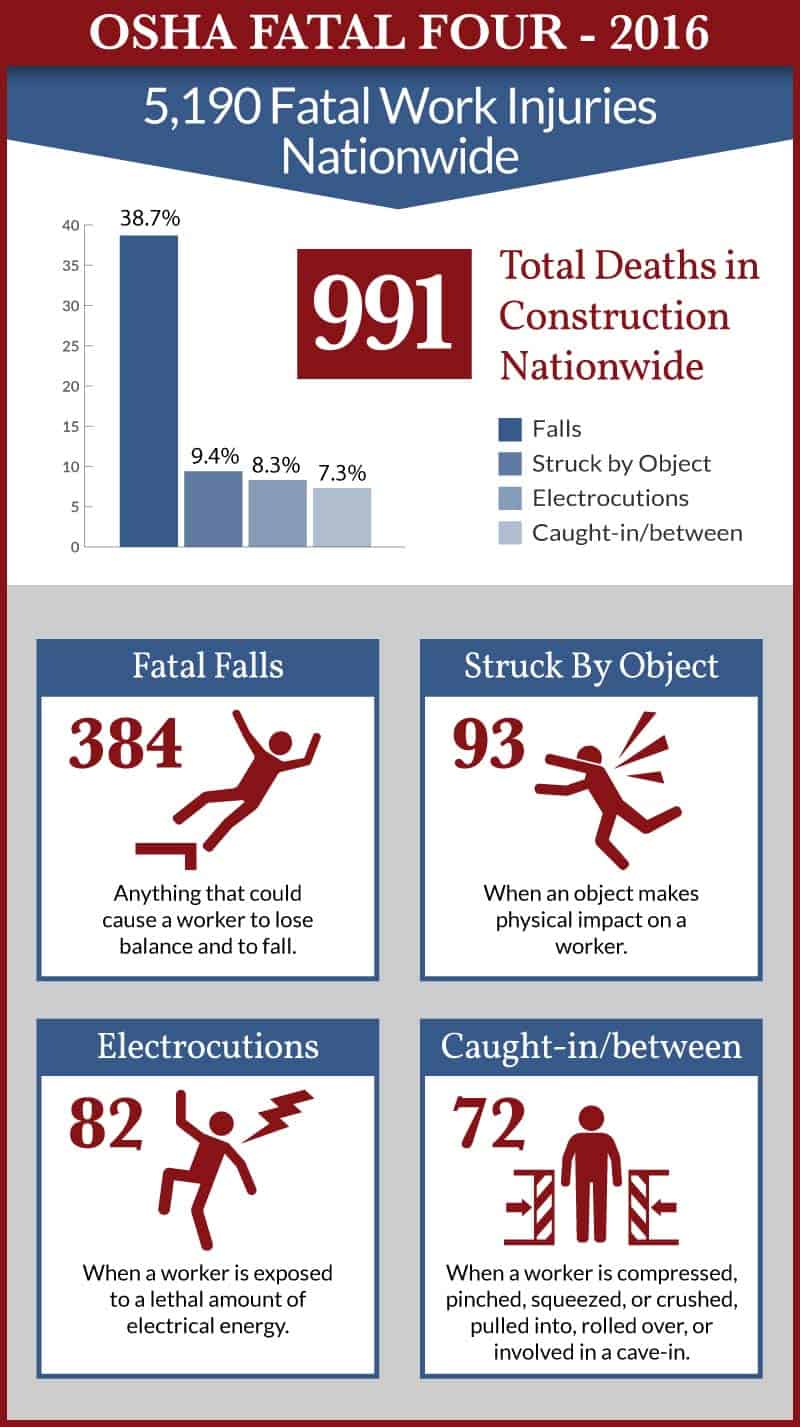Workers Compensation
Contact a Philadelphia Workers Compensation Lawyer Today

At Freedman & Lorry, P.C. our dedication to fighting hard in the courts for working people is unsurpassed. For over 70 years, our attorneys have delivered quality legal services to clients from all walks of life. Every day, we strive to improve upon our record of success.
For more information regarding our firm, or to speak with an attorney, contact us online or call our office at 215-925-8400 or 866-369-6060.
For more information view: https://www.freedmanlorry.com/practice-areas/workers-compensation/
If you incur injuries while at your job, the Philadelphia Workers’ Compensation lawyers at Freedman & Lorry, P.C. will fight for maximum compensation for your injuries or the tragic loss of a loved one. Call us today at 866-369-6060 or contact us online for a free consultation. Located in Philadelphia, Pennsylvania, Cherry Hill, New Jersey, and Pinehurst, North Carolina, we serve clients throughout Pennsylvania.

Workers’ Compensation is designed to provide financial and medical protection to employees injured or made ill due to their work. Unlike traditional personal injury claims, Workers’ Compensation operates as a no-fault system — meaning injured employees do not need to prove employer negligence to receive benefits. This system balances the needs of workers for timely support with the interests of employers, who are protected from costly lawsuits by participating in mandatory insurance programs.
At Freedman & Lorry, P.C., we help injured workers understand this complex legal landscape. We provide guidance on the types of benefits available, the claims process, and what to expect along the way. Our goal is to ensure you receive the compensation you deserve for recovery and financial security.
Key Benefits Provided Under Workers’ Compensation
In Pennsylvania, an injured worker may be entitled to several core benefits under the Workers’ Compensation Act:
- Wage Loss Benefits: You can receive weekly payments equal to approximately two-thirds of your average weekly wage, subject to state maximum limits. These benefits help replace lost income during your recovery period.
- Medical Treatment Coverage: The insurance carrier must pay for reasonable and necessary medical care related to your injury, including hospital stays, surgeries, medications, physical therapy, and medical devices like prosthetics or orthopedics.
- Death Benefits: If a worker dies as a result of a workplace injury or illness, their dependents may be eligible to receive death benefits and assistance with burial expenses.
Understanding these benefits is crucial, as the exact amount and duration of payments depend on the nature of your injury, your wage history, and other factors.
Other Compensation Programs That May Apply
While Pennsylvania’s Workers’ Compensation system covers the majority of workers, some groups fall under specialized federal or other state programs. These include:
- Federal Employees: Covered by the Office of Workers’ Compensation Programs (OWCP), which provides benefits and vocational rehabilitation.
- Maritime Workers: Covered by laws like the Longshore and Harbor Workers’ Compensation Act, which applies to dockworkers and related employees.
- Defense Base Act Workers: This law protects employees working overseas for the U.S. government, including contractors and military support personnel.
Knowing which program applies is essential for receiving proper benefits. Families dealing with the loss of a loved one should confirm coverage type to avoid confusion or delays.
Common Workplace Injuries and Safety Concerns in Pennsylvania
Workplace injuries continue to impact many employees across various industries, and Pennsylvania remains among the states with notable rates of occupational injuries and illnesses. While the exact numbers fluctuate yearly, recent data from the U.S. Bureau of Labor Statistics (BLS) and state labor departments reveal ongoing trends and risks:
- Healthcare and social assistance workers remain among the most frequently injured, often suffering from musculoskeletal disorders due to patient handling and repetitive tasks.
- Retail workers face risks from slips, trips, falls, and incidents involving manual material handling.
- Manufacturing employees frequently experience injuries related to machinery, repetitive motions, and exposure to hazardous substances.
- Transportation and warehousing sectors report significant injuries due to vehicle accidents, lifting injuries, and falls.
- Construction workers continue to face high risks from falls, struck-by incidents, electrocutions, and caught-in or between accidents.
Common Types of Workplace Injuries
The most frequent injuries reported by workers include:
- Muscle strains and sprains, often caused by overexertion, repetitive movements, or improper lifting techniques.
- Slips, trips, and falls, which can result in fractures, bruises, and head injuries.
- Cuts, lacerations, and punctures, frequently occurring in manufacturing, construction, and retail settings.
- Fractures and dislocations due to falls or accidents involving heavy equipment.
- Repetitive stress injuries, such as carpal tunnel syndrome and tendonitis, often stemming from repetitive tasks or poor ergonomics.
- Exposure-related illnesses, including respiratory conditions caused by inhalation of dust, chemicals, or asbestos.
What Qualifies as a Work-Related Injury?
Not every injury that occurs during employment qualifies for Workers’ Compensation. Typically, the injury or illness must arise out of and in the course of employment — meaning it must be connected to your job duties. Injuries sustained while traveling for work or at company events may also qualify, though exceptions exist, particularly if the employee engaged in misconduct such as intoxication or illegal activity.
Additionally, occupational diseases and cumulative injuries, such as repetitive stress injuries or illnesses caused by long-term exposure to harmful substances, can be covered but often require careful proof of the work-related cause.
Who is Considered an Employee Under Pennsylvania Law?
Generally, any person performing services for compensation under the control or direction of an employer qualifies as an employee for Workers’ Compensation coverage. This includes full-time, part-time, and temporary workers, whether on-site or working remotely.
Certain workers, like independent contractors, domestic workers, and some agricultural workers, may not be covered, so understanding your classification is important.
Medical Treatment and the Role of the Company Doctor
If your employer has an approved list of physicians, you must initially select a doctor from that list for treatment. The company doctor monitors your recovery and determines when you can safely return to work. Ongoing medical care related to your injury is covered by the employer’s insurance.
What to Do After a Workplace Injury in Philadelphia
- Report the injury to your employer immediately.
- Seek prompt medical treatment to document and address your injuries.
- Keep detailed records, including photos of the accident site and witness information.
- If your employer refuses to file an injury report, you may need to file a claim petition yourself.
Delaying any of these steps can jeopardize your ability to collect benefits.
Important Deadlines and Paperwork
Employees must notify their employer within 21 days of an injury and file claims within three years. Missing these deadlines can forfeit your rights.
Be cautious before signing any documents such as final receipts or settlements without legal advice, as they may affect your claim.
Returning to Work and Your Rights in Philadelphia
If you return to work but continue to experience symptoms or pain, do not sign any documents without consulting an attorney. Follow your doctor’s instructions closely and report any issues immediately.
Meet Paul B. Himmel, Esq. — Your Advocate in Workers’ Compensation Claims
Paul B. Himmel, Esq. is a Senior Shareholder at Freedman & Lorry, P.C. and leads the firm’s Workers’ Compensation Department. With over 30 years of experience, Paul is certified by the Pennsylvania Supreme Court as a Workers’ Compensation Law Specialist and has been recognized on the Pennsylvania Super Lawyers list each year since 2017.
He has secured substantial settlements for injured workers and is committed to helping you obtain the benefits you deserve.
Contact Our Philadelphia Workers’ Compensation Lawyers at Freedman & Lorry, P.C.
If you have been injured at work, don’t navigate the complex Workers’ Compensation system alone. Attorney Paul B. Himmel, Esq. and the dedicated team at Freedman & Lorry, P.C. are here to guide you every step of the way. Call a Philadelphia Workers’ Compensation lawyer at 888-999-1962 or contact us online to schedule a free consultation. Our offices in Philadelphia and Cherry Hill serve clients across Pennsylvania and New Jersey.

